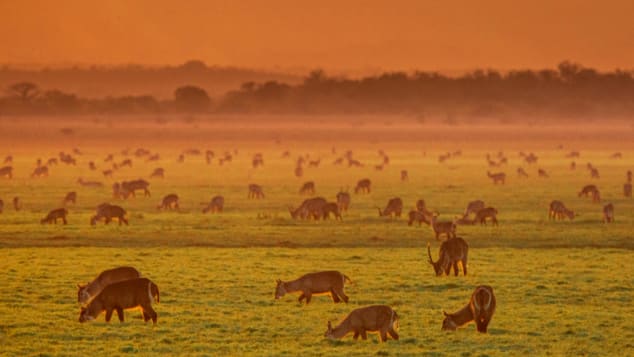In the middle of Mozambique, at the southern end of the Great African Rift Valley, Gorongosa National Park is a haven for wildlife. The 1,500-square-mile (4,000 square-kilometer) park is flourishing now -- but it has had a tumultuous history.

Gorongosa was first established as a hunting reserve by Mozambique's Portuguese rulers in 1920. They gradually opened it up to tourists and in 1960, declared it a national park. However in 1977, two years after Mozambique declared independence from Portugal, a bloody civil war erupted and Gorongosa became a battleground. When the war ended in 1992, the landscape was devastated and more than 90% of Gorongosa's large mammals had been killed.
Efforts were made to rehabilitate Gorongosa after the war but it wasn't until 2004, when American philanthropist Greg Carr partnered with the Mozambican government to restore the park, that it started coming back to life. But the work didn't stop there. As well as restoring the park, Carr and his team have created new opportunities for women in a bid to tackle Mozambique's entrenched gender inequality. Currently, a third of the park's 600-strong workforce is female -- with a goal to reach 50%.
Before Gorongosa closed in March because of the Covid-19 pandemic, CNN visited and spoke to three of the women who are working to rebuild this natural treasure.
read more here @ CNN Travel

No comments:
Post a Comment